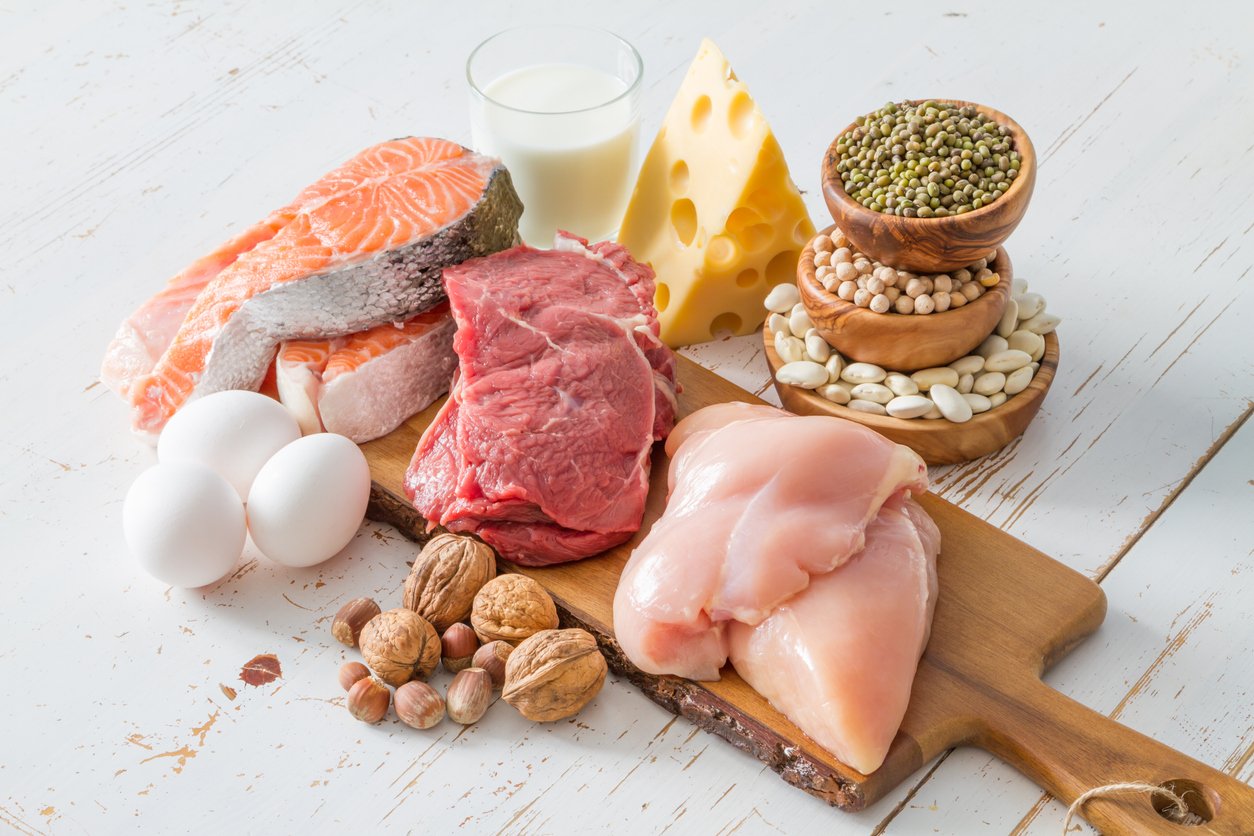THE ROLE OF PROTEIN IN RECOVERY AND MUSCLE GROWTH.
Protein sources
Whether you’re lifting weights, running, or rebuilding strength after injury, your muscles work hard every session and they need the right fuel to recover. That’s where protein comes in.
Protein is one of the most important nutrients for muscle recovery, strength, and overall performance. It supports your body’s ability to repair, rebuild, and adapt after training helping you make real progress from your hard work.
At JY Exercise Physiology, I see many clients improve their performance and reduce soreness simply by paying more attention to their protein intake. Here’s why it’s so essential and how to make sure you’re getting enough.
💪 Why Protein Matters for Recovery and Muscle Growth
When you exercise, whether it’s strength training, cycling, or functional rehab, you cause small, controlled damage to your muscle fibres. This is completely normal and actually part of the process that helps your body adapt and grow stronger.
Protein provides the amino acids (the building blocks of muscle) that your body needs to repair those fibres, making them stronger than before. Without enough protein, this repair process slows down, leading to fatigue, soreness, and plateaus in performance.
In short, no protein = no progress.
The Benefits of Protein for Exercise Recovery
Getting enough protein in your diet can:
Support faster muscle repair and recovery
Reduce muscle soreness after training
Build lean muscle mass and improve strength
Prevent muscle loss during weight loss or injury recovery
Enhance metabolism and energy throughout the day
That’s why protein is often referred to as the foundation of recovery nutrition. It works hand-in-hand with carbohydrates and hydration to keep your body performing at its best.
🕒 When Should You Eat Protein?
You’ve probably heard about eating protein straight after a workout and there’s some truth to that. Your muscles are most receptive to repair in the 30–90 minutes after exercise.
Having a protein-rich snack or meal soon after your session helps maximise recovery. However, what’s even more important is your total daily intake. Your body benefits most when protein is spread evenly across your meals and snacks throughout the day.
Great Post-Workout Options:
Protein smoothie with milk, banana, and oats
Greek yoghurt with fruit and honey
Eggs on wholegrain toast with avocado
Chicken or tofu with rice and vegetables
Tuna wrap or salad with quinoa
💡 Exercise Physiology Tip: Aim for 20–30g of protein per meal to support muscle recovery and maintenance.
How Much Protein Do You Actually Need?
Your daily protein needs depend on your age, body weight, and activity level. As a guide:
General health: 0.8–1.0g per kg of body weight per day
Active individuals or resistance training: 1.2–2.0g per kg per day
Older adults or during rehab: 1.5–2.0g per kg per day
For example, someone who weighs 70kg and trains regularly may need around 100–130g of protein per day.
That might sound like a lot, but with a little planning, eggs at breakfast, chicken at lunch, Greek yoghurt for a snack, and fish for dinner, it’s very achievable.
Best Sources of Protein
Animal-Based Protein:
Chicken, turkey, beef, lamb, pork
Fish and seafood
Eggs
Dairy (milk, yoghurt, cheese, cottage cheese)
Plant-Based Protein
Tofu, tempeh, and edamame
Lentils, beans, and chickpeas
Nuts and seeds
Whole grains like quinoa and oats
💡 Tip: Combine different plant-based proteins (like rice and beans) to ensure you’re getting all essential amino acids great for those following a vegetarian or vegan diet.
Protein and Exercise Physiology
At JY Exercise Physiology, I often work with clients recovering from injury or looking to improve performance. Protein is a crucial part of that process.
Adequate protein intake helps:
Support tissue repair after injury
Improve recovery times between exercise sessions
Build resilience and reduce reinjury risk
Enhance muscle strength for long-term function and mobility
Combined with a structured, evidence-based exercise plan, proper nutrition helps our clients move better, recover faster, and perform at their best.
Common Protein Mistakes to Avoid
Even the most active people can fall short on protein. Here are a few common mistakes to watch for:
Skipping meals after training or during busy days.
Relying too much on supplements instead of whole foods.
Eating all protein at once instead of spreading it throughout the day.
Not eating enough overall calories, especially during rehab or strength programs.
Remember supplements can help, but real food should always come first.
Learn More About Protein
Protein is more than just a fitness buzzword it’s the foundation of your body’s ability to recover, rebuild, and perform. Whether you’re training for strength, endurance, or rehabilitation, your muscles rely on it every day.
By eating balanced, protein-rich meals and maintaining consistency, you’ll support long-term progress and reduce the risk of injury or fatigue.
If you’re unsure how much protein you need or how to tailor your nutrition to your training, JY Exercise Physiology can help. I’ll guide you through a personalised plan that fits your goals, lifestyle, and health needs.
Book a consultation today and learn more about protein for recovery and muscle growth.
Located in Upper Mount Gravatt and speak with an Accredited Exercise Physiologist now to discuss how I can facilitate your needs.
Feel free to explore our other blogs to learn more and gain additional insights.
Call +61 421 967 711

